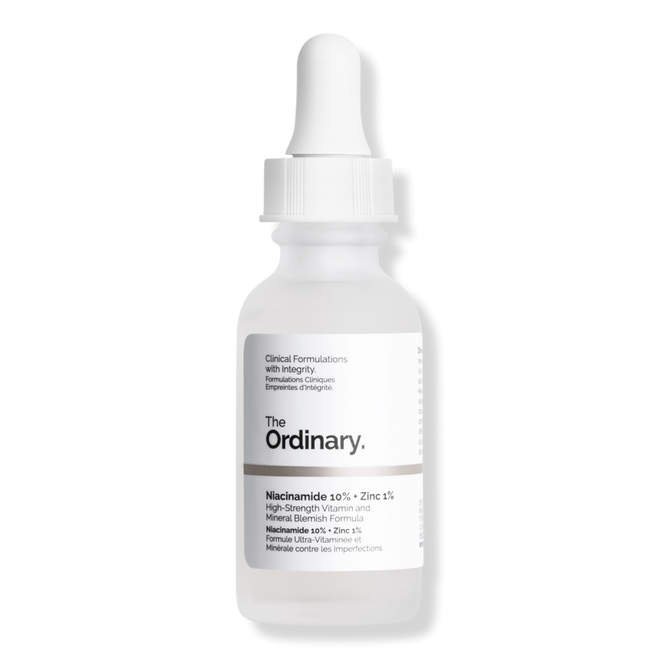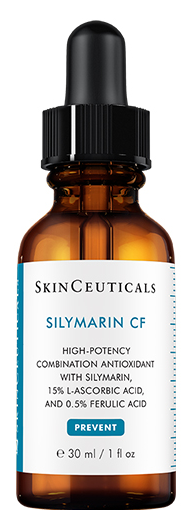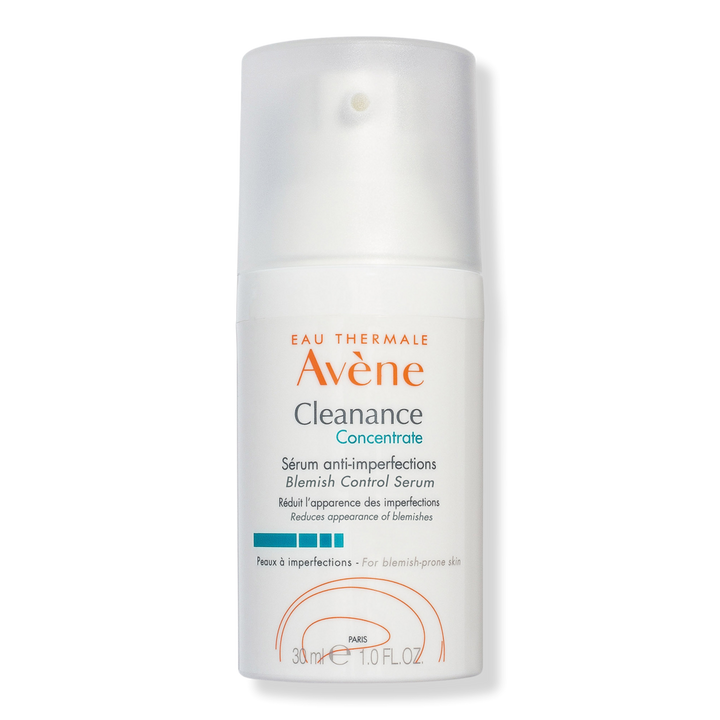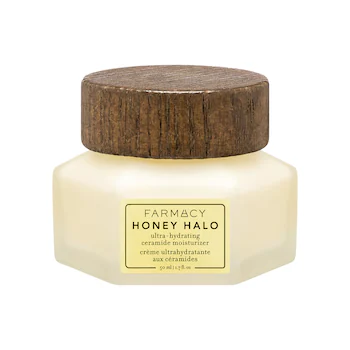Does Vitamin C Help Acne? Here’s What You Need to Know

Does vitamin C help acne? While it's impossible to say yes beyond a shadow of a doubt, half a dozen studies point to vitamin C helping with many skin conditions.
This post is a comprehensive guide on the benefits of vitamin C for acne.
Introduction
If you’ve suffered from acne, you know how tricky it can be to treat. It’s often like playing a game of whack-a-mole with your skin.
As soon as you clear one blemish, two more pop up. Acne is a common condition, and there is no single cause for the problem.
From hormonal imbalance to nutritional deficiency, there are various triggers and causes of acne.
The good news: among the ocean of synthetic treatment options, there are lots of organic skincare solutions for getting rid of acne, including vitamin C.
In the 1930s, vitamin C was discovered to be a powerful remedy for scurvy, a disease that caused bleeding gums, spots on the skin, and joint pain.
Since then, we’ve come to know that vitamin C does a lot more than ward off scurvy.
Vitamin C is a potent antioxidant that can help protect your skin from damage caused by free radicals, UV rays, and pollution.
It also plays a role in collagen production, which is essential for keeping your skin looking young and supple.
But what about helping skin ailments like acne?
According to a 2013 study by the Indian Dermatology Online Journal, Vitamin C is a potent topical remedy for certain skin conditions.
But what about the side effects? What kind of acne does vitamin C treat? Is it best to apply vitamin C topically or ingest it orally?
This article will answer all of these questions and more. Let’s jump in.
Disclaimer: The benefits of prebiotic skincare and Aleavia specifically have been positively vetted and approved by board-certified dermatologists, microbiologists, and medical doctors. However, we always recommend consulting your primary care physician or board-certified dermatologist before making major health changes.
What is acne and what causes it?
Acne vulgaris is a skin condition that occurs when your hair follicles become plugged with oil and dead skin cells.
When this happens, bacteria can grow and cause inflammation.
There are many different causes of acne. Hormonal changes, such as those during puberty or pregnancy, can cause acne.
Certain medications, such as corticosteroids or lithium, can also trigger breakouts. Diet and stress are other possible culprits.
Some common causes of acne include:
- Hormonal imbalance
- Overuse of skin products
- Pollution
- Diet
- Genetics
- High humidity

The different types of acne
There are many different types of acne vulgaris. The most common are blackheads, whiteheads, papules, pustules, nodules, and cysts.
Blackheads form when your pores become clogged with oil and dead skin cells. The mixture oxidizes and turns black. Whiteheads are very similar to blackheads but have not oxidized.
Papules are small, red, inflamed bumps. Pustules look like papules but have a white or yellow head.
Nodules are large, hard bumps that form deep under your skin. Cysts are fluid-filled sacs that form under your skin.
What does vitamin C do for your skin?
Vitamin C is a powerhouse nutrient with plenty of benefits for your overall health. But what does it do for your skin?
Vitamin C is an antioxidant. This means it helps to protect your cells from damage caused by free radicals. Free radicals are unstable molecules that can cause cell damage and lead to various health problems.
In addition to its antioxidant properties, vitamin C also has anti-inflammatory effects. This can be beneficial for people with conditions like acne, eczema, and psoriasis.
Finally, vitamin C plays a role in collagen production. Collagen is a protein that helps to keep your skin looking firm and elastic. As we age, our bodies produce less collagen, which can lead to wrinkles and sagging skin.
Vitamin C for acne
There is some evidence to suggest that vitamin C may be beneficial for people with acne.
A 2013 study found that a topical form of vitamin C was effective in treating acne vulgaris, the most common type of acne. The study participants who used the vitamin C cream had significantly reduced inflammation and fewer pimples than those who did not use the cream.
It also seemed to expedite wound healing and prevent post-inflammatory hyperpigmentation. Hyperpigmentation is a common side effect of acne, characterized by dark spots on the skin.
It’s important to note that more research is needed to determine whether or not vitamin C is truly effective for acne. However, the evidence that does exist is promising.
Side effects of vitamin C
Vitamin C is generally safe and well-tolerated. Side effects are rare, but according to the 2013 study, "Minor adverse reactions include a yellowish discoloration of the skin, hypopigmented hair and staining of clothes, which occur due to oxidative changes of Vit. C. Once applied, Vit. C cannot be fully washed or wiped off the skin. Rarely, stinging, erythema and dryness are observed after use of topical Vit. C. These can easily be treated using a moisturiser. Care must be taken while applying Vit. C around the eyes."
In other words, use common sense. If vitamin C results in your skin becoming red, irritated, or uncomfortable, you may be having a reaction and should stop treatment immediately.
How to take vitamin C for acne

If you’re interested in using vitamin C for your acne, there are a few different ways to do it.
You can take it orally in the form of supplements or use topical products that contain vitamin C. There is no one-size-fits-all answer, so experiment to see what works best for you.
If you decide to take supplements, be sure to talk to your doctor first. They can help you determine the right dosage for your individual needs.
Topical products are available in a variety of forms, including creams, serums, and oils. You can find them at most drugstores and beauty retailers.
When using topical products, it’s important to start slowly and increase frequency gradually. This will give your skin time to adjust and will help you avoid any unwanted side effects.
Do a patch test on a small area of skin first to make sure you don’t have an allergic reaction. If everything goes well, you can start using the product on your entire face.
It’s also important to use sunscreen when taking vitamin C orally or applying it topically. This is because vitamin C makes your skin more sensitive to the sun.
Wearing sunscreen will help protect your skin from sun damage and will help you get the most out of your vitamin C treatment.
Can vitamin C get rid of acne scars?
Acne scars are one of the most stubborn and difficult-to-treat skin concerns. They can be caused by a variety of factors, including inflammation, picking at pimples, and genetics.
There is some evidence to suggest that vitamin C may help reduce the appearance of acne scars.
A 2016 study found that a topical form of vitamin C was effective in reducing the appearance of scars caused by surgery. The study participants who used the vitamin C cream had significantly reduced scarring compared to those who did not use the cream.
Another study, this one from 2014, found that a gel containing 5% vitamin C was effective in treating acne scars. The study participants who used the gel saw a significant improvement in the appearance of their scars after 12 weeks of treatment.
The evidence is promising, but more research is needed to determine whether or not vitamin C is truly effective for treating acne scars.
If you’re interested in using vitamin C for your acne scars, there are a few different ways to do it. You can take it orally in the form of supplements or use topical products that contain vitamin C.
You can also combine vitamin C with other acne scar treatments, such as retinoids, chemical peels, and microdermabrasion. However, it’s important to talk to your doctor first to make sure this is the right approach for you.
Some other natural remedies for acne include:
- Black seed oil for hyperpigmented spots
- Rosehip oil for scars
- Honey for scars
- Aloe vera for soothing inflammation and discoloration
- Many over-the-counter products can also help with acne scars, including:
- Salicylic acid
- Retinoids
- Alpha hydroxy acids
- Lactic acid
- Silicone dressings
If these measures fail to help, you can consult a dermatologist. They can suggest a treatment best suitable for your skin.
The best products for acne-prone skin
Finding the right products for your acne-prone skin can be a challenge. There are so many products on the market, and it can be hard to know which ones will actually work for you.
To help you out, we’ve compiled a list of the best products for acne-prone skin. These products have all been tested and proven to be effective at reducing acne.
Let’s have a look at some great products for acne-prone skin.
Aleavia Prebiotic Acne Repair Kit | Natural Acne Kit

If you’re looking for a natural acne kit that actually works, look no further than the Aleavia Prebiotic Acne Repair Kit. This kit comes with everything you need to get started on your acne-clearing journey.
The kit includes our Aleavia Purifying Facial Cleanse and Aleavia Clear Facial Mist. These products work together to cleanse, tone, and hydrate your skin while also helping to reduce acne.
All our ingredients are 100% natural from the earth and sea, vegan, cruelty-free, and safe for all skin types.
Niacinamide 10% + Zinc 1% Oil Control Serum

This serum claims to reduce the signs of congestion and visible sebum activity. It also helps in improving the appearance of textural irregularities
The key ingredients include niacinamide and zinc PCA.
Silymarin CF

This oil-free vitamin C serum is designed specifically for oily and blemish-prone skin. The serum offers environmental protection, reduces oiliness, refines skin texture, and boosts skin clarity and fine lines.
Cleanance Concentrate Blemish Control Serum

It is formulated with 11 blemish-fighting ingredients. It helps restore and re-establish a healthy skin environment
Users of the serum report long-lasting results and a visible reduction in the appearance of blemishes
Farmacy Honey Halo Ultra-Hydrating Ceramide Moisturizer

Ingredients in this serum offer soothing and humectant benefits. They bind and restore moisture, leaving your skin looking plump and supple.
They also prevent moisture loss and strengthen the skin barrier.
How does vitamin C serum help with acne?
One of the most popular forms of vitamin C application is vitamin C serum. But does it actually help?
Let’s see what research says:
Acne-associated inflammation
Experts believe vitamin C has anti-inflammatory action, which can help improve the appearance of lesions.
In a 12-week study, 61% of the participants using vitamin C reported improvement in acne as compared to those without it,
Another study reported a 48.8% reduction in acne with vitamin C and 63% in those using vitamin C with vitamin A.
Acne scars
If the skin doesn’t heal after an acne breakout, it can result in scar development.
Vitamin C supports the healing of scars by increasing the production of collagen – a skin protein responsible for skin healing and elasticity.
In a study, 15% of the participants on vitamin C and micro-needling reported faster healing than those without the treatment.
However, vitamin C may not be useful for certain scars.
Hyperpigmentation
Acne, sun rays, or injuries can result in hyperpigmented spots on your face.
Vitamin C serum interferes in the production of a chemical that aids in the production of skin pigment – melanin.
It can also brighten your skin and reduce the appearance of dark spots.
Various studies have proven the beneficial effect of vitamin C serum in hyperpigmentation.
While many studies have shown the mentioned benefits of vitamin C, long-lasting studies are lacking in knowing its effect on acne.
Types of vitamin C
There are different types of vitamin C, including:
Ascorbic acid
It is the most well-known and well-researched form of vitamin C. It is the most effective form to penetrate the skin barrier.
Sodium Ascorbyl Phosphate
It converts into ascorbic acid once it’s applied to the skin. While it is less active, it is beneficial for people with sensitive skin.
Magnesium Ascorbyl Phosphate
It is one of the most stable and most hydrating forms of vitamin C.
Sodium Ascorbate
Ascorbic acid is the purest form of vitamin C, and this form is the sodium salt of ascorbic acid. It converts to ascorbic acid when applied to the skin, making it less potent. However, it is less irritating and beneficial for those with sensitive skin.
Calcium Ascorbate
This is another mineral salt of ascorbic acid. It is effective at a neutral pH, making it non-irritating to the skin.
Ascorbyl Palmitate
It is a fat-soluble derivative of vitamin C, ascorbyl palmitate. While it is non-irritating for sensitive skin, it is more stable when exposed to air and light than ascorbic acid.
Final thoughts
Vitamin C has many beneficial effects on acne. Using a natural vitamin C serum is an excellent way to utilize the benefits and manage acne.
Vitamin C has many benefits for acne, including reducing inflammation, improving healing, and reducing hyperpigmentation. However, more long-term studies are needed to fully understand its effects.
You can get more vitamin C in your diet by eating foods such as strawberries, bell peppers, broccoli, tomatoes, citrus fruits, and leafy greens. You can also use skin care products that contain vitamin C, such as serums, creams, and moisturizers.
We understand the importance of natural ingredients, especially if you are struggling with acne.
All Aleavia products are chemical-free, paraben-free, cruelty-free, and made with natural ingredients from the earth and sea. If nothing is working to help your acne, we recommend starting with our Aleavia Prebiotic Acne Repair Kit.
Good luck, and thanks for reading!

